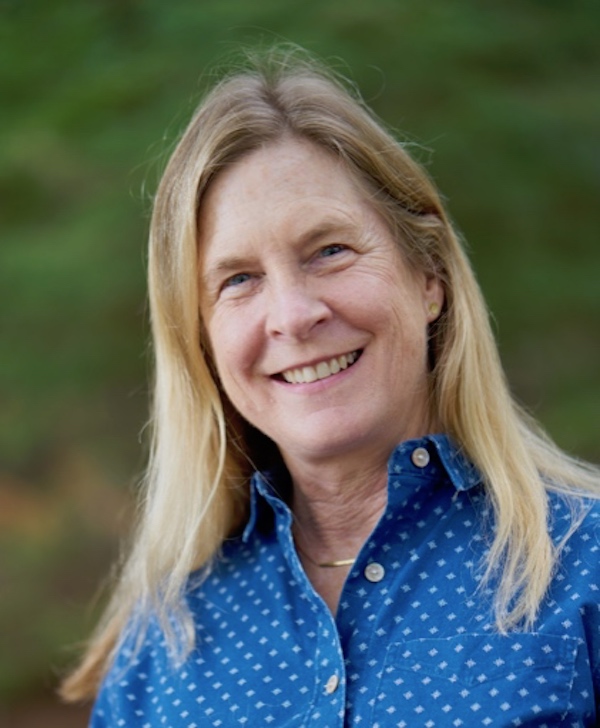A well-known Republican candidate has turned up the heat in the race for a Maine Senate seat that has been held by Democrats for 20 years and represents one of the most progressive cities in Maine.
Former Cumberland County District Attorney Stephanie Anderson, a Republican, faces state Rep. Anne Carney, a Democrat, in the race for the Senate District 29 seat representing South Portland, Cape Elizabeth and sliver of Scarborough.
Elected in House District 30 two years ago, Carney is aiming for a possible seat swap with Sen. Rebecca Millett, a Democrat who is termed out after serving eight years in Senate District 29. Millett is running for the House District 30 seat against Republican Timothy Thompson.
Both Anderson and Carney are accomplished community leaders with robust resumes who have dedicated their careers to the law and public service. Both are attorneys. Both live in Cape Elizabeth.
Anderson has significant name recognition after nearly three decades as an elected district attorney and law enforcement activist through 2018. Carney’s record as a public official is more recent and attentive to the concerns of voters in Senate District 29 and beyond.
But while Carney is running as a solid Democrat, Anderson is running as a “centrist” Republican who says she doesn’t like President Trump and doesn’t support the Republican National Committee, although she wouldn’t name her presidential pick this election.
As a result, the differences between their positions on major issues – health care, abortion, gun control, climate change – are nuanced, leading some Democrats to stress the importance of backing Carney during a critical election year, and some Republicans to chastise Anderson for straying from the party line.
Anderson has drawn criticism on social media and elsewhere for deemphasizing her party affiliation. It’s buried on her campaign website and absent from her lawn signs and mailers. Some also have noted that her lawn signs feature two shades of blue, the color of Democrats, but no red, the color of Republicans.
“That’s just nonsense. Blue is my favorite color,” Anderson said. “I’m (not) trying to hide the fact that I’m a Republican. I’m just not using it as a basis for people to vote for me. Partisan politics has gotten so vitriolic, disrespectful and unhelpful. I’m more of a centrist.”
Carney declined to comment on her opponent’s lawn signs or campaign strategy.
“I have been working hard to make sure people understand who I am and what they’ll be getting when they vote for me,” Carney said. “I think my values, my life experience and my successes in the Legislature match the priorities of the district.”
DEMOCRATS FOR TWO DECADES
Democrats have dominated Senate District 29 for two decades, though Larry Bliss barely held onto the seat in 2010 with a narrow 9,172-9,097 win over Republican Joe Palmieri. Millett handily won the last four terms, securing 74 percent of the vote in 2018. The seat was held by Republicans from 1967 through 2000.
Campaign finance reports, detailing everything from supporters’ donations to spending on printer ink, show how Anderson has stoked interest in this race and reveal the breadth of Carney’s support.
When Millett ran as a publicly financed Clean Elections candidate in Senate District 29, she raised and spent $22,756 to $29,648 each election, far outpacing the $2,100 spent by her Republican opponent in 2018.
Carney is running as a traditionally financed candidate, as she did in 2018 for the House District 30 seat representing part of Cape Elizabeth. In that race, she raised $19,060 in individual contributions, including $10,510 for the Democratic primary. That far exceeded the $900 in seed money raised by her primary opponent, Mary Ann Lynch, a Clean Elections candidate who received $2,524 in public financing. Lynch is now campaigning for Anderson.
During this campaign, Carney has already raised $63,594 and spent $60,522, according to mid-September reports. That includes $34,269 in individual contributions and $26,025 financed by the candidate and her husband. Anderson is running as a publicly financed Clean Elections candidate, raising $52,800 and spending $20,816 so far.
The 2020 race could be decided primarily in South Portland, which has 11,116 Democrats, 3,641 Republicans and 6,019 unenrolled voters among the registered electorate. Cape Elizabeth has 4,628 Democrats, 1,841 Republicans and 1,999 unenrolled voters. Additional ballots will be cast by Green Independent voters and residents of the Scarborough Beach, Higgins Beach and Pleasant Hill neighborhoods in Scarborough.
CARNEY ON THE ISSUES
Carney, 57, practiced employment, civil rights and municipal law for 16 years, then provided pro bono legal advice to low-income Mainers for eight years. She also served on the board of directors of the Cape Elizabeth Land Trust from 2010 to 2018, leading it to national accreditation in land conservation in 2015.
Carney’s public profile grew after she was elected to the House District 30 seat in 2018. She sponsored or helped to shape several bills that were passed with unanimous or bipartisan support. They included legislation to ensure affordable health care for children and postpartum care for mothers, as well as protections for vulnerable adults targeted by scams and for workers who are veterans or pregnant.
Carney gained notice in neighboring South Portland for her work on Maine’s first-in-the-nation foam food container ban and her sponsorship of legislation that ensured petroleum companies must properly close and clean up fuel terminals they shut down.
South Portland has taken the lead on many environmental issues, passing one of the first foam container bans in Maine and an ordinance to block the Portland Pipe Line Corp. transporting tar sands oil from Canada. It also worked with state officials to establish a citywide air quality monitoring program to measure emissions from petroleum tank farms.
Although Cape Elizabeth has no fuel terminals, Carney said she sponsored the proper closure bill because she has experience working on cases involving environmental cleanups and insurance coverage. She also knows how to distill and negotiate complex legislation. And she understood the environmental and economic threats that faced communities across Maine if oil terminals were simply abandoned.
“I work for all Mainers,” Carney said. “With me, you know what you’re going to get.”
Carney said she’s an advocate for gun safety and preventing gun violence; economic opportunity and security for Maine workers and businesses; and universal health coverage, women’s reproductive health care and abortion rights.
“It’s time to re-think how we access healthcare and to create coverage that is not tied to the workplace,” Carney said on her campaign website. “I believe health care decisions should be made by patients and their health care providers.”
Carney supports strong and equitable public education; protecting the environment and meeting Maine’s climate goals; and working against systemic racism and toward racial justice.
“I believe we must address systemic racism, changing laws and law enforcement practices, to erase disparities in the way people of color are treated in the criminal justice system,” Carney said. “I think we can say the same thing about employment and housing.”
ANDERSON ON THE ISSUES
Anderson, 68, was elected to seven terms as district attorney, serving 28 years before retiring in 2018. She reorganized the office and reformed prosecution of juveniles, domestic violence, human trafficking, drug crimes, shoplifters, homeless people and others. She led the state and national prosecutors’ associations for over 20 years.
“I have extensive experience working with all branches of Maine government,” Anderson said on her website. “I have worked with four governors and 14 legislatures on hundreds of bills.”
As a prosecutor and recovering addict and alcoholic, Anderson said she has witnessed the impact of failed government policies, well-intentioned but misguided laws and other challenges facing many Mainers.
Anderson bristled when asked how she would represent South Portland in particular, a city dominated by Democrats that has gained national recognition as a progressive community, especially on environmental and social issues.
“I don’t think my values conflict with progressive values,” said Anderson, who joined the Republican Party because it aligned with her core beliefs in freedom, self-determination and personal responsibility, according to her website.
Anderson said she would vote independently, evaluating legislation based on how constituents felt about it and whether the intended outcome would likely be successful, equitable and cost effective.
Anderson said she supports business development and job creation; public education and technical career training; and responsible state budgets that protect vulnerable citizens, including veterans, disabled citizens and older Mainers.
Anderson signed a pledge to advance racial equity and justice, she said, and she sees a need for continued criminal justice reform, including additional training for police.
She favors a “sensible response to climate change,” saying the state’s climate goals are laudable, but she would consider the pros and cons of related legislation. And she supports “informed reproductive choice,” which means she’s pro choice and believes women should be fully informed “from prevention to termination,” she said.
Anderson said Maine “has a pretty good set of gun control laws right now” and “has done a good job (with) expanded Medicaid.”
“Everyone needs good quality preventive health care,” Anderson said. “It’s clear to me that we’re moving toward (universal) health care. To change to a single-payer system would be a huge upheaval. We need to figure out a way to untether health coverage from employment.”
Comments are not available on this story.
Send questions/comments to the editors.




